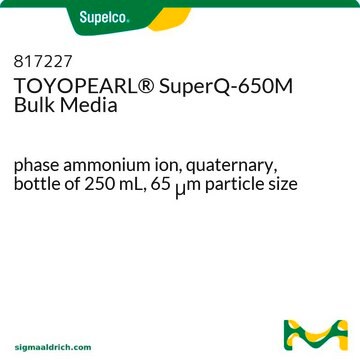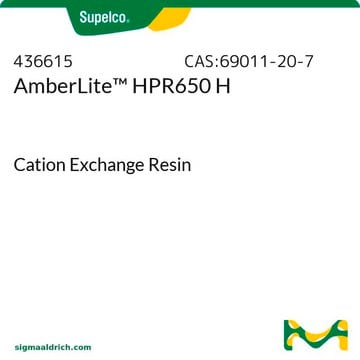810508P
Avanti
16:0 DNP PE
1,2-dipalmitoyl-sn-glycero-3-phosphoethanolamine-N-(2,4-dinitrophenyl) (ammonium salt), powder
Synonym(s):
1,2-dihexadecanoyl-sn-glycero-3-phosphoethanolamine-N-(2,4-dinitrophenyl) (ammonium salt)
Sign Into View Organizational & Contract Pricing
All Photos(1)
About This Item
Empirical Formula (Hill Notation):
C43H79N4O12P
CAS Number:
Molecular Weight:
875.08
UNSPSC Code:
12352211
NACRES:
NA.25
Recommended Products
Assay
>99% (TLC)
form
powder
packaging
pkg of 1 × 25 mg (810508P-25mg)
manufacturer/tradename
Avanti Research™ - A Croda Brand 810508P
shipped in
dry ice
storage temp.
−20°C
General description
Phosphoethanolamine is a precursor to phosphatidylcholine and phosphatidylethanolamine. 2,4-dinitrophenol (DNP) is a synthetic lipid-soluble compound which transports ions across the bioenergetic membranes.
Application
16:0 DNP PE may be used:
- to generate lipid aggregates/lipid micelles
- in the preparation of liposomes
- as an internal standard to spike the tissue samples for the quantification of N-acylphosphatidylethanolamine (NAPE)
- in lipid solution as a receptor site to prepare bilayer lipid membranes (BLMs)
Biochem/physiol Actions
Phosphoethanolamine participates in phospholipid metabolism. It has the ability to repress tumour growth both in vitro and in vivo.
Packaging
5 mL Amber Glass Screw Cap Vial (810508P-25mg)
Legal Information
Avanti Research is a trademark of Avanti Polar Lipids, LLC
Storage Class Code
11 - Combustible Solids
Certificates of Analysis (COA)
Search for Certificates of Analysis (COA) by entering the products Lot/Batch Number. Lot and Batch Numbers can be found on a product’s label following the words ‘Lot’ or ‘Batch’.
Already Own This Product?
Find documentation for the products that you have recently purchased in the Document Library.
Jesse LoVerme et al.
The Journal of biological chemistry, 281(32), 22815-22818 (2006-06-21)
Oleoylethanolamide (OEA) is an endogenous lipid mediator that inhibits feeding and stimulates lipolysis by activating the nuclear receptor peroxisome proliferator-activating receptor-alpha. Little is known about the physiological regulation of this compound outside of the gastrointestinal tract, where its production is
Anna Ketelsen et al.
Journal of immunological methods, 339(2), 195-204 (2008-10-16)
Antibodies against hydrophobic antigens are common in several autoimmune diseases. However, detection of such antibodies by standard immune-assays, such as ELISA, is problematic, in part because of the problems with coating hydrophobic molecules onto polystyrene multi-well plates. We describe a
Membrane Transport
An Introduction to Biological Membranes, 423-451 (2016)
Mieko Horie et al.
Analytical biochemistry, 369(2), 192-201 (2007-08-28)
This article describes a new method for direct fluorometric immunoassay with a liposome array using pH-sensitive dye (BCECF [2',7'-bis(carboxyethyl)-4 or 5-carboxyfluorescein])-encapsulating liposomes immobilized on an avidin slip and gramicidin channels. The liposomes were composed of phosphatidylcholine (PC), cholesterol (Chol), biotinylated
Ayumi Hirano et al.
Biosensors & bioelectronics, 18(8), 973-983 (2003-06-05)
A novel ion-channel sensor based on a membrane bound receptor and a single gramicidin channel is described, in which the binding of an analyte to the membrane bound receptor modulates the single-channel activity of gramicidin. The sensor is composed of
Our team of scientists has experience in all areas of research including Life Science, Material Science, Chemical Synthesis, Chromatography, Analytical and many others.
Contact Technical Service








